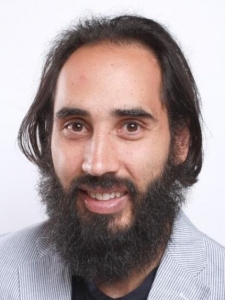Embracing democratic dissent in a data-driven age
Stephen Chatelier, Mark Harrison and Elke Van dermijnsbrugge
Introduction
We teach in a pre-service teacher programme that prepares students for a teaching career in international schools. In one of the courses, we discuss models of teacher appraisal and teacher effectiveness, their purposes, and how different schools approach them. We ask whether or not student performance data should be part of these processes. During the discussion, it is inevitable that one of the students will argue that data must be used because, ultimately, the most important concern of a school is the learning of students.
During our time as schoolteachers and in our ongoing conversations with colleagues, we have heard this same argument, in different forms, many times over.
How dare you – it’s all about student learning!
These days, we often hear that the student – and student learning – are more important than anything else, and should be the yardstick for all that happens in schools. The problem with this is that it seems impossible to argue against. Who in their right mind is going to say “the students aren’t really the most important” or “hmm, I don’t think student learning is really at the centre of what we do as a school”?
The view that student learning is the aim of schooling might seem obvious, but has been challenged, perhaps most notably by the academic Gert Biesta who argues that education is a much broader enterprise. While the claim that student learning is all that matters is itself problematic, it is also used all too often as a “shut down” to alternative voices.
If you’ve ever tried questioning the latest initiative focusing on wellbeing, resilience, growth mindset, or “soft skills”, you’ve probably experienced “the shutdown”! If you’re thinking of being that person, good luck!
The ‘research shows’ argument
Perhaps you’ve been in a meeting about increasing the quantity of reporting. The school leadership is arguing that parents should get more regular feedback, as well as more detailed end-of-term reports. As concerns about the increased administrative requirements for teachers are voiced, the reply comes: “research shows that formative feedback and home-school partnerships are key to student improvement, and surely that is our primary aim?”
The argument here is not only that student learning is the only thing that matters, but that ‘the research’ undeniably supports the particular initiative being proposed. In this sense, ‘the research’ is often quoted in a vague and ‘handwaving’ manner to justify an initiative. After all, who can argue with ‘the research’?
So, just like the ‘student learning’ strategy, the ‘research says’ declaration is too often used to quash dissenting voices.
Democratic education
The dissenting voice, however, is central to ensuring a democratic education.
Put another way, the data-driven, evidence-based discourses in schools risk undermining the various forms of education that prioritise students’ responses to the world around them, inquiry and the construction of knowledge, and engaged citizenship, all elements of a broader vision of education than one which simply focuses on ‘learning.’
When teachers become focused on the numbers and the data, they are more likely to engage in practices that primarily focus on that which can be measured. That is, teachers are more likely to do the equivalent of ‘teaching to the test’. As a result, we start to value what we measure instead of measuring what we value (Biesta).
Given that many international schools claim to provide exactly the kind of education that guides students in becoming responsible members of a global society, it is important that we consider the implications of focusing on data and numbers.
Dissenting voices
In fact, if we really believe that the best education for our students is that which ‘draws out and opens up’ rather than ‘narrows in and closes down’, then we ought to be more, not less, sceptical about educational agendas which flatten and standardise practices.
And we ought to be willing to embrace dissenting voices from teachers as well as students.
But while we make the argument for allowing dissent, it is important to note that this is not the same as mere complaint. Dissent, it can be argued, is more closely aligned to democratic education, not because it allows the community to simply say whatever they want, but because it involves giving account for one’s position.
Dissent emerges from genuine concerns – whether philosophical, practical, political or pedagogical – and can, therefore, play an important role not only in critiquing the way things are, but in contributing to different and innovative ideas for education.
Embracing alternative views for education
The start of a new school year is the time in which new initiatives are proposed with energy and enthusiasm. School leaders are often keen to ensure that they push something through, before the grind of the daily and weekly routine sets in. As such, it can be tempting to resist the dissenting voices by invoking ‘the research’ which is, in actual fact, always contestable, or the centrality of student learning.
Managed well, a genuine invitation for dissent is to see any proposal of a new initiative as an educative opportunity itself. It is an opportunity for the community to genuinely inquire into, grapple with, critique and imagine alternatives. It is an opportunity to ask: what does the data actually tell us? What does the research not address? And, are there other factors – outside the data or the research – that perhaps ought, nevertheless, to carry more weight in making a decision?
A school that breeds a culture of genuine engagement with ideas, and leaders who genuinely listen to dissenting voices, model something of the kind of democratic education that so many international schools claim to promote. In embracing this culture within the staff, the effects will be felt across the school, including in the classrooms.
So, next time we are tempted to shut down debate by blithely stating “learning is the most important thing” or “the research says”, perhaps it is worth thinking about what this says about our perspective on the role of education.



Stephen Chatelier, Mark Harrison and Elke Van dermijnsbrugge have all been teachers and leaders in international schools. They now work in the Department of International Education at The Education University of Hong Kong, where they teach and conduct research on critical aspects of international schooling.





Leave a Reply
Want to join the discussion?Feel free to contribute!